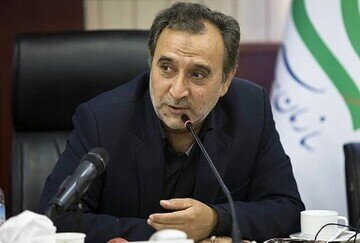TEHRAN - Mohammad Dehghan, Deputy President for Legal Affairs, stressed on Saturday that Iran considers negotiation the most effective approach to settle the Arash Gas Field dispute.
Highlighting the efficacy of negotiation in resolving the dispute, Dehghan stressed it as the most efficient means for a resolution. He underscored, "While the Ministry of Foreign Affairs holds the responsibility for these negotiations, Iran is ready to initiate development based on the drilled wells if Kuwait pursues field utilization."
Nevertheless, he emphasized that a collaborative approach with joint development and focus on shared interests would be preferable.
Considering the maritime border with Saudi Arabia as an opportunity for mutual utilization, Dehghan emphasized the importance of ensuring the preservation and optimal use of the Arash Field. He highlighted the need for clear maritime borders before determining ownership of different parts of the Arash Field, emphasizing the prevention of unfounded claims from Kuwait.
As the legal complexities surrounding the Arash Gas Field dispute persist, Dehghan's statements underscore the diplomatic and legal nuances involved. The call for negotiation and emphasis on shared interests present a diplomatic approach to resolving the issue, focusing on cooperation and mutual benefit for the nations involved.
In the backdrop of regional tensions, the offshore gas field in the Persian Gulf has become a longstanding point of contention between Iran and Kuwait, both asserting ownership of this source. Last March, Kuwait and Saudi Arabia signed an agreement to jointly develop the Durra field, known as Arash in Iran. Iran promptly objected, deeming it "illegal" and asserting plans for independent development.
The gas field, discovered in 1967 on the eastern maritime border of Kuwait, remains a source of dispute as Iran claims the field extends into its waters. Estimates suggest over 70% of the resources of the disputed gas field lie in waters claimed by Iran. Despite years of diplomatic talks, Iran and Kuwait have not reached an agreement on their disputed maritime border area, which is rich in natural gas. The prolonged negotiations have yet to yield a resolution, highlighting the complexities surrounding this strategically significant region.


No comments:
Post a Comment